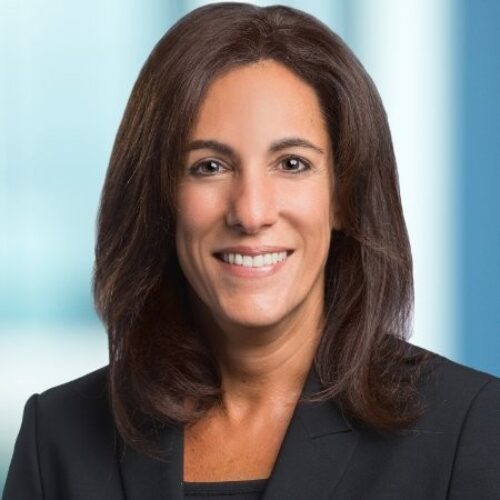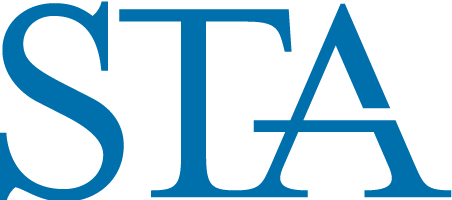On behalf of the entire STA Women in Finance Committee, we’d like to thank our subscribers for their support for and engagement with this series! While we’ll continue these interviews in 2024, it’s been a pleasure sharing the stories of women from all areas of the industry who aim to inspire the next generation.

We’re closing out 2023 with Stephanie Dumont, Executive Vice President, Market Regulation and Transparency Services at FINRA. The department conducts extensive oversight of the securities markets through innovative, automated surveillance that assesses billions of market events each day in exchange-listed, unlisted and fixed income securities for compliance with FINRA rules and the federal securities laws. The department also operates facilities that bring transparency to the equity and fixed income markets and create the foundation of the regulatory audit trail, i.e., TRACE (the Trade Reporting and Compliance Engine), the Trade Reporting Facilities, the Alternative Display Facility, and the OTC Reporting Facility.
Previously, she was Senior VP and Director of Capital Markets Policy in FINRA’s Office of General Counsel, where she led the policy and rulemaking team. Prior to that, Ms. Dumont was Director of Compliance for a broker-dealer compliance consulting firm. She started her career conducting investigations for NASD in insider trading, fraud, short selling and options. She earned a B.S. in Finance from University of Virginia; J.D. from University of Virginia School of Law; and LL.M. in Securities, with distinction, from Georgetown University Law Center.
Why did you choose a career in the financial services industry? How did you get started?
A family friend worked at the SEC in Enforcement and later at the NYSE and I was always interested and intrigued by his career path. I was a Finance major and was making the decision whether to go to law school or start working full-time after graduation. I thought securities enforcement work could be an interesting and fun way to use my Finance degree with a law degree. So I went to law school and my first summer, I interned at the SEC and loved it. The next summer I worked at a law firm, and – no offense to law firms – I found that I enjoyed the enforcement work a lot more and also found it very challenging. It was like solving puzzles for a living.
So when I graduated law school, I chose to stay on the regulator course. A mentor advised me that if I wanted to get hands-on and unique experience right away, NASD was a great opportunity to do that.
How has securities regulation changed in the time that you’ve been part of it?
With the incredible advances in technology, securities regulation has evolved with it – advances in the sophistication of our surveillance portfolio, the alert process, the data we have that underlies our surveillance and our investigative and analytical tools. There has been a constant progression for the 30 years I have done regulatory work. It may seem gradual and incremental externally from a big-picture perspective, but from the inside, there are significant enhancements going on every day in large part because of the incredibly innovative and talented staff who drive the change and improvement.
And just as important, technology has also allowed us to better coordinate and share information across regulators – within FINRA across different regulatory areas and externally with other regulators, both domestic and international – all of which results in a stronger, more informed regulatory ecosystem. It’s harder for bad actors to hide when we are all working together and sharing regulatory intel.
The securities regulatory environment also must be very attuned to the evolution of market structure and industry business and trading models. It has been interesting to see how different products and security types have evolved at varying paces from a number of perspectives such as market structure, transparency and regulatory audit trail.
What are you most proud of in your career and why?
I have been so fortunate to work with incredible teams on so many important initiatives that have made a real difference for investors and the markets, I can’t pick just one. Every day I know we are making a positive difference, whether it be enhancing transparency in the markets, investigating a potential regulatory issue or helping educate investors.
Beyond that, I’m tremendously proud of my colleagues themselves, and that I’ve had the opportunity to work at FINRA with them. We truly are a very mission-driven organization, and it’s the importance of protecting investors that really drives us. It’s an honor and privilege to be part of that.
What are your hopes for the future of securities regulation?
The first goal would be to continue our progress on getting ahead of and preventing fraud and harm to customers, proactively. That always requires having a deep and broad understanding of the industry and markets we oversee, so you can anticipate and respond to trends and risks as they emerge. That’s something that I believe FINRA is very adept at, and it’s also something we work at improving constantly.
I would like to see a broader public understanding of the value of securities regulation and the industry and markets we oversee. A vibrant securities industry is critical to capital formation and wealth creation, two essential components of a strong economy. Effective and efficient regulation of the industry and the markets helps ensure that the public can participate in the markets with confidence. Their very participation is a key contributor to our economic strength. Understanding that complete story helps explain why our markets are the deepest and most liquid in the world, in no small part because they are vigorously regulated.
Do you have any words of wisdom for the next generation of women in financial regulation?
Get comfortable with being out of your comfort zone. Sometimes, we have a tendency to perceive new opportunities as risky if we don’t have every qualification. The fact is, virtually no one can check every box and be expert in everything. So give yourself grace and give yourself a chance. You should feel comfortable that you will be able to work hard and learn anything new just like you have with all of your other amazing achievements. In other words, if it’s something you want or are excited about, just go for it.
During the course of my career, I’ve learned that the comfort zone is not necessarily the place you want to be – instead it’s where you tend to coast or stagnate, not thrive. If you want to learn and grow, and do work with meaning and higher purpose, you can do all of that in financial regulation. The securities industry is constantly evolving, so securities regulation has to evolve with it. That means opportunities to learn and apply your unique skills and talents – to find your own path. It can be challenging, but it’s personally rewarding. And that’s where real opportunity lies, for women who want to make a difference with their careers, and in the lives of investors.
